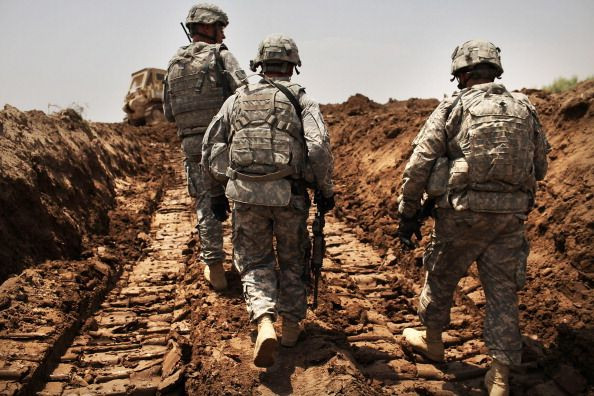Is There A Link Between Concussions And PTSD Risk? Soldier Studies Suggest Brain Is More Vulnerable To Disorder

For years, scientists have suspected a link between traumatic brain injury and Post Traumatic Stress Disorder (PTS), and a growing body of evidence is shedding light on the correlation. The research, including a study on soldiers and another on rats, may help explain why troops who are exposed to concussive bomb blasts are more vulnerable to later developing PTSD.
A study published in JAMA Psychiatry of soldiers who’d been deployed to Iraq and Afghanistan found that troops who suffer a concussion or mild traumatic brain injury are twice as likely to develop PTSD — which is a condition that has been linked to a variety of psychological difficulties, including insomnia, chronic depression, eating disorders, anger, and substance abuse. About 11 to 30 percent of veterans from different military services suffer from the debilitating anxiety disorder, the VA reported.
Dewleen Baker, a psychiatrist at UCSD and the VA San Diego Healthcare System, and a team of researchers began studying more than 1,600 Marine and Navy service members from San Diego’s Camp Pendleton. Before deployment to Iraq or Afghanistan, the service members had been assessed, and then again three months after returning, NPR reported.
"At one point we got this battalion that went to Helmand Province in Afghanistan and literally 50 percent of them were complaining of blast exposures and symptoms," Baker said, according to NPR. "I got concerned."
The study found that troops who experienced a traumatic brain injury were twice as likely to develop post-traumatic stress disorder.
In a related experiment from the University of California, Los Angeles, healthy rats were compared with rats that had experienced a TBI. The rats were then exposed to fear conditioning. The research team examined cells in the brain’s amygdala, which absorbs sensory information and dictates whether to be afraid, and found changes that would amplify the animal's response to a frightening experience.
"And we think that that's the way TBI has of increasing your susceptibility to post-traumatic stress," Fanselow Michael, a psychology professor at UCLA and an author of the UCLA rat study, told NPR.
Read more:
PTSD Patients Who Have Nightmares Are More Likely To Experience Suicidal Thoughts, Tendencies



























